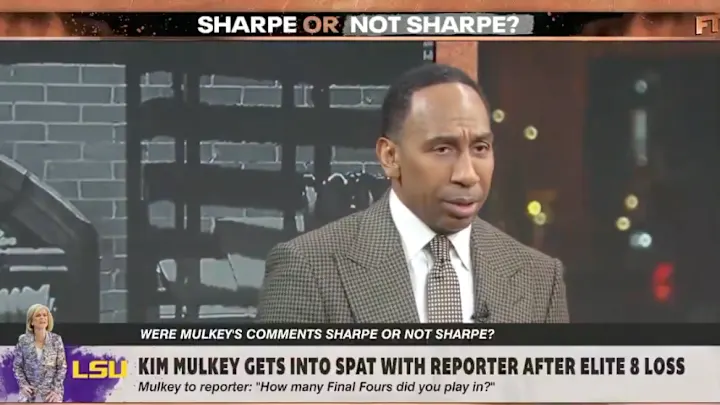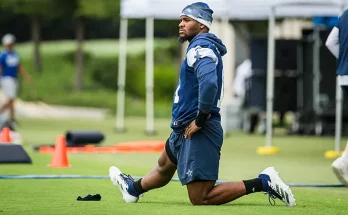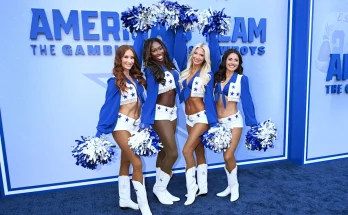Stephen A. Smith Calls LSU Coach Kim Mulkey ‘Very Rude’ After Spat With Reporter
LSU women’s basketball coach Kim Mulkey is no stranger to controversy, but her recent exchange with a student reporter has reignited discussions about her approach to media interactions. Following LSU’s 72-65 loss to UCLA in the Elite Eight of the NCAA tournament, Mulkey’s dismissive response to a question from KLSU reporter Jayden Smith sparked backlash. Sports analysts, including Stephen A. Smith, were quick to criticize her conduct, with Smith calling her “very rude” and “condescending” on ESPN’s First Take. This incident adds to Mulkey’s history of contentious media relations, drawing renewed attention to her public demeanor.
The Incident: Mulkey’s Exchange with the Reporter
During the postgame press conference, Jayden Smith, a student journalist covering LSU basketball, asked Mulkey about the program’s consecutive Elite Eight exits. Before he could finish, Mulkey interrupted him, challenging his premise.
“Do you think that’s terrible?” she asked. “Do you think that’s good?”
Smith hesitated before responding, “I think that’s up to you to decide.”
Mulkey then continued, asking how many Final Fours he had participated in. When Smith admitted he had not played in any, she responded, “So it’s probably pretty good, huh?”
The exchange, while brief, struck many as unnecessarily combative, particularly given the nature of the question. While press conference tensions are common in sports, critics argued that Mulkey’s response was dismissive and belittling toward a young journalist simply doing his job.
Stephen A. Smith’s Response
Stephen A. Smith, a well-known voice in sports commentary, weighed in on First Take, expressing strong disapproval of Mulkey’s behavior.
“There’s a way to answer a question without being condescending,” Smith said. “I respect the hell out of Kim Mulkey as a coach, but she was very rude. It wasn’t necessary.”
Smith pointed out that successful coaches often face tough questions and should be prepared to respond professionally. He suggested that Mulkey’s reaction was an attempt to deflect scrutiny from LSU’s failure to advance past the Elite Eight for a second consecutive year.
“This wasn’t some ambush question,” Smith continued. “This was a legitimate question about the state of the program. You don’t have to talk down to someone for asking it.”
Broader Media Reactions
Smith was not the only sports analyst to criticize Mulkey. Shannon Sharpe, co-host of Nightcap, called her response “nasty” and “unacceptable.”
“We talk about athletes being held accountable, but coaches have to be held to the same standard,” Sharpe said. “You don’t belittle a reporter, especially a student reporter, for doing their job.”
Others in sports media echoed this sentiment. ESPN’s Paul Finebaum labeled her response “petty,” while The Athletic’s Nicole Auerbach argued that Mulkey’s handling of the moment reflected a broader trend in how some coaches treat journalists.
“Accountability goes both ways,” Auerbach wrote. “If Mulkey wants credit for LSU’s success, she has to answer for its shortcomings, too.”
Kim Mulkey’s History with the Media
This is not the first time Mulkey’s approach to media interactions has come under fire. Just a few weeks before LSU’s NCAA tournament run, she made headlines for threatening legal action against The Washington Post over an anticipated article about her. While the details of the article remained unclear at the time, Mulkey’s preemptive outrage fueled speculation about its content.
“I don’t know what’s in it,” Mulkey said. “But I’ve been told it’s a hit piece, and I’m ready to fight back.”
Stephen A. Smith addressed this controversy as well, questioning whether Mulkey’s aggressive stance against the media was in her best interest.
“When you go after the media like that, you draw more attention to yourself,” Smith said. “Instead of letting your success speak for itself, you make yourself the story.”
Analysis: Coaching Culture and Media Accountability
Mulkey’s exchange with Jayden Smith raises broader questions about how coaches, particularly those in high-profile positions, interact with the media. College coaches wield significant power, and some have been known to use their authority to control narratives aggressively.
This kind of pushback is not uncommon in men’s college basketball either—coaches like John Calipari, Tom Izzo, and Mike Krzyzewski have had their own tense moments with reporters. However, the growing visibility of women’s sports means that interactions like Mulkey’s are now scrutinized just as closely.
There is also the issue of how student journalists are treated. Unlike seasoned reporters, student journalists are still learning the ropes of sports media. Many in the journalism community argue that established figures like Mulkey should use these moments to educate rather than belittle.
Kim Mulkey is undoubtedly one of the most accomplished coaches in college basketball, but her handling of press interactions continues to draw criticism. Stephen A. Smith’s remarks highlight a larger discussion about professionalism and accountability in sports media. While emotions run high after tough losses, coaches at the highest level are expected to engage with the media respectfully.
As LSU looks ahead to next season, Mulkey’s leadership will remain under the microscope—not just for her team’s performance on the court, but also for how she handles the public spotlight.



